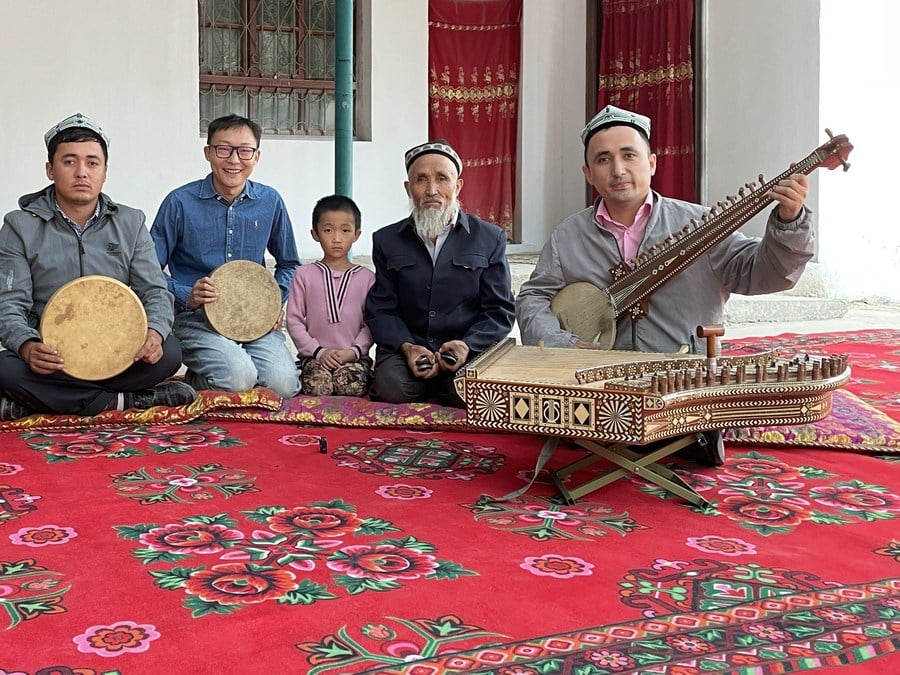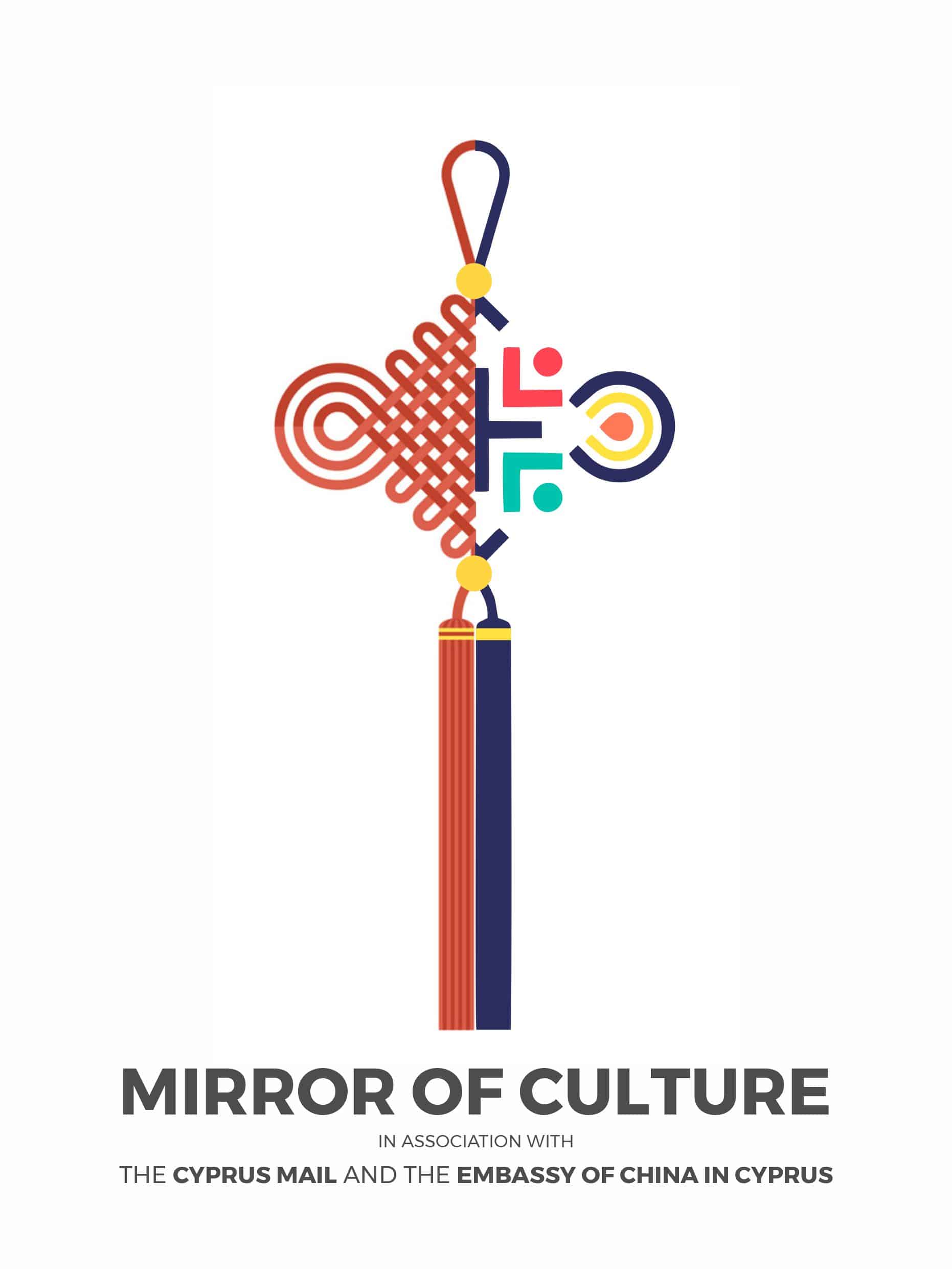PAUL LAMBIS meets two very different men who share one thing in common
Although Wang Jiangjiang and Pavlos Michaelides are from different cultures, live in different parts of the globe, and have never met, they couldn’t be more similar when it comes to their passion for and preservation of their cultural heritage.
For the last 13 years, Jiangjiang, 38, has been engaged in documenting and recording intangible cultural heritage in Xinjiang, northwest China. “It was my predestined fate to come to the region from my hometown in Hebei Province to witness Muqam and other cultural features,” he said.
According to Jiangjiang, Muqam is the Uygur word for classical music. “It is a traditional art of this ethnic group, integrating songs, dances and literature, and is hailed as an ‘encyclopaedia’ of their history and social life.”
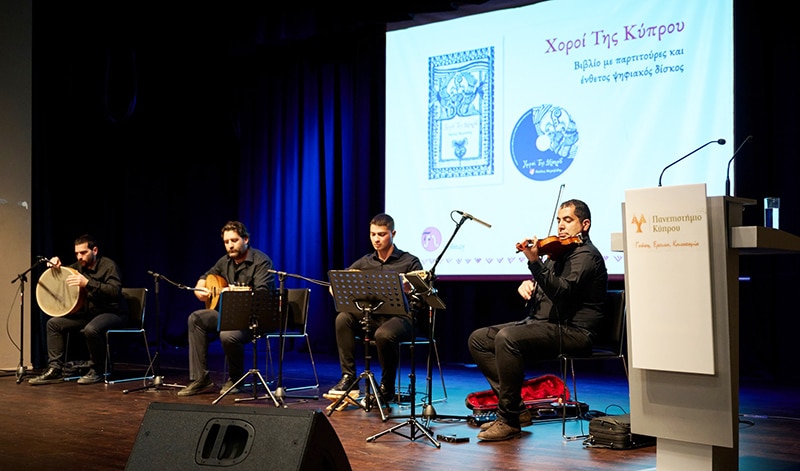
Similarly, Pavlos Michaelides, a professional Cypriot violinist who was born and raised in Nicosia, has spent the last few years researching old recordings of Cypriot folkloric music, sifting through a vast library of archived material and information that has culminated in his recent volume of work, which includes a selection of 26 instrumental pieces.
“Dances of Cyprus is my most recent work, and it celebrates our rich Cypriot cultural heritage that has been passed down through the generations.”
Jiangjiang attended the Xi’an Conservatory of Music before travelling to Italy to study opera performance and composition. He began collecting folk music in China in 2009 and was drawn to Muqam the first time he saw it in the documentary World Heritage in China.
“I was fascinated by the unpredictable melody and revel performers the first time I heard and watched this impassioned performance. I hoped to learn more about this art as a result,” he said.
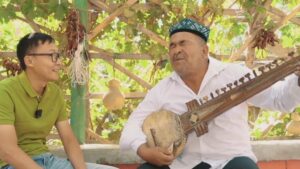 As a result of his interest in Muqam and desire to learn more about the region, Jiangjiang travelled to southern Xinjiang in 2010 to collect indigenous music and interview folk singers. It was here that he met Ershidin Tursun, a member in Ruoqiang County’s Loulan Art Troupe, with whom he later developed a strong friendship.
As a result of his interest in Muqam and desire to learn more about the region, Jiangjiang travelled to southern Xinjiang in 2010 to collect indigenous music and interview folk singers. It was here that he met Ershidin Tursun, a member in Ruoqiang County’s Loulan Art Troupe, with whom he later developed a strong friendship.
However, it was music that would serve as a catalyst to expedite their bond, “as Tursun expressed an interest in integrating into our milieu and learning Xinjiang music.”
His continuous research led him to view Uygur drama and movies, meet more musicians, perform with them both off- and on-stage, and acquire the fundamentals of their language. As he became more acquainted with the local culture, Jiangjiang noticed that the majority of the recordings in his possession were of Muqam ensemble performances and lacked individual artists.
“Without musical scores, people only learned the art orally and could rarely sing all of it,” he explained. “The majority of the artists were elderly and had no idea how to preserve the art through video, photographs and sound.”
After studying music at the Athens branch of the University of Indianapolis, Pavlos Michaelides began his music career as a concertmaster and member of various symphonic and other musical ensembles.
In 2005, Michaelides opted to relocate to Greece to gain first-hand knowledge of traditional music. “I was working as a banker while furthering my music studies,” he told Cyprus Mail. “Although I had learned some traditional music, I felt I was not yet ready to play professionally. Following the Greek financial crisis, I returned to Cyprus and undertook many music projects.”
 In 2014, Michaelides co-founded the music group Trio Levante with Petros Kouloumis and Pantelis Ionas, focusing on the Greek urban folk sounds of Smyrna, Asia Minor. “This rich musical heritage reflects the societal problems that the Greek community faced at the time,” he added.
In 2014, Michaelides co-founded the music group Trio Levante with Petros Kouloumis and Pantelis Ionas, focusing on the Greek urban folk sounds of Smyrna, Asia Minor. “This rich musical heritage reflects the societal problems that the Greek community faced at the time,” he added.
Four years later, Michaelides was inspired by his deep connection to traditional music to form the Aes Cyprium Ensemble, a musical scheme centred on Cyprus’ traditional music. “There are common characteristics found in the musical traditions of the island’s neighbouring communities, and our music emphasises Cyprus’ unique stylistic elements.”
As an aspiring violinist in his adolescence, Michaelides always wanted to work alongside renowned Greek artists, but didn’t achieve this until he was in his 30s, “when my perspective had changed to a more professional one, realising the importance of collaborating and producing quality music.”
Michaelides’ Dances of Cyprus focuses on Cypriot identity and the externalisation of emotions through dancing. However, the main aim of his work is to highlight and promote Cypriot musical identity, documenting an important component of Cyprus’ intangible cultural heritage while also shining a spotlight on the island’s international community.
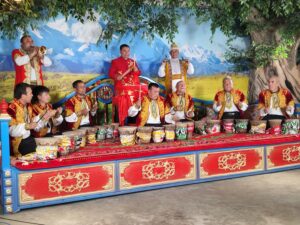
When Jiangjiang began documenting inheritors of intangible cultural heritage in Shache County, Kashgar Prefecture in 2017, he used cameras to digitise their art and recorded 318 folk artists during a six-month period.
“At the time, there was only one college student who assisted me, but now we have an entire team and an established studio,” he added.
Jiangjiang and his team began meticulously recording Muqam art in 2020, with the support of the regional government. “There are 45 varieties of Muqam and oral biographies of 77 Muqam inheritors that have been completed, covering over 300 villages and towns through video, photo, sound and biographies.”
In addition to Muqam, Jiangjiang has also recorded other forms of intangible cultural heritage in Xinjiang, documenting the details of over 2,000 multi-ethnic folk musicians. “Recording these cultures in Xinjiang can provide musicians with inspiration as well as materials for future generations to research and spread our culture and art,” he said.
The repertoires of both Jiangjiang and Michaelides connect them to some of their country’s most prominent musical luminaries. Although from two separate worlds, their passion and commitment to preserving their musical heritage unites them, reflecting their country’s identity, and enhancing the lives of future generations.
About ‘Mirror of Culture’
‘Mirror of Culture’ is a joint initiative of the Cyprus Mail and the Embassy of China in Cyprus. It highlights the parallels between Cypriot and Chinese culture, in order to set an example of acceptance, respect and understanding among the various cultural communities in Cyprus, at the same time recognising the fundamental importance of culture.
Culture is the universal language of mankind that transcends many barriers, including language and geography. Our aim is to work with diverse cultural communities in Cyprus to share and promote our vibrant cultures in order to further bolster the bonds amongst all the people of Cyprus and celebrate the diversity of cultures in the world.
Furthermore, the initiative understands the importance of cultural preservation, which is an important way for us to transmit traditions and practices of the past to future generations.
View the video on Cyprus Mail’s YouTube Channel: LINK

